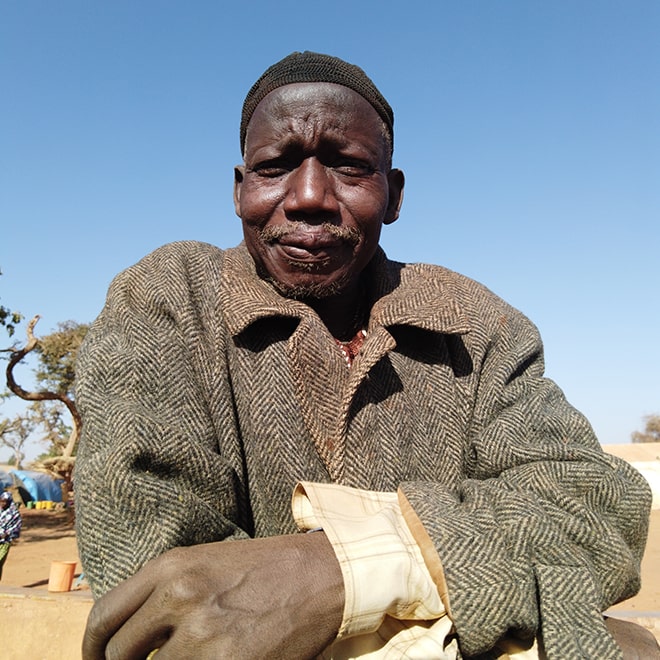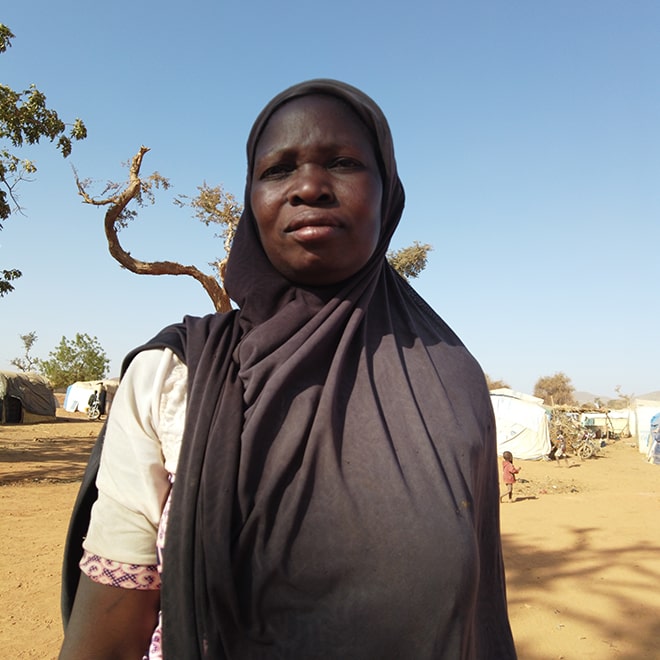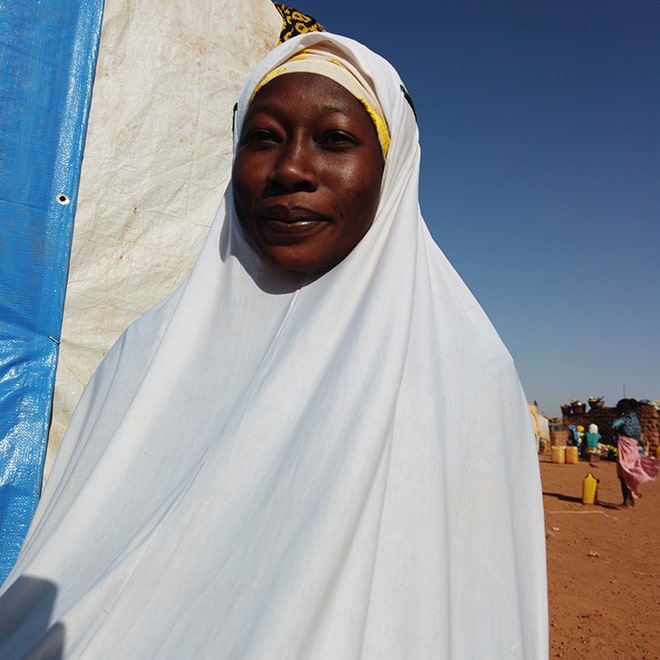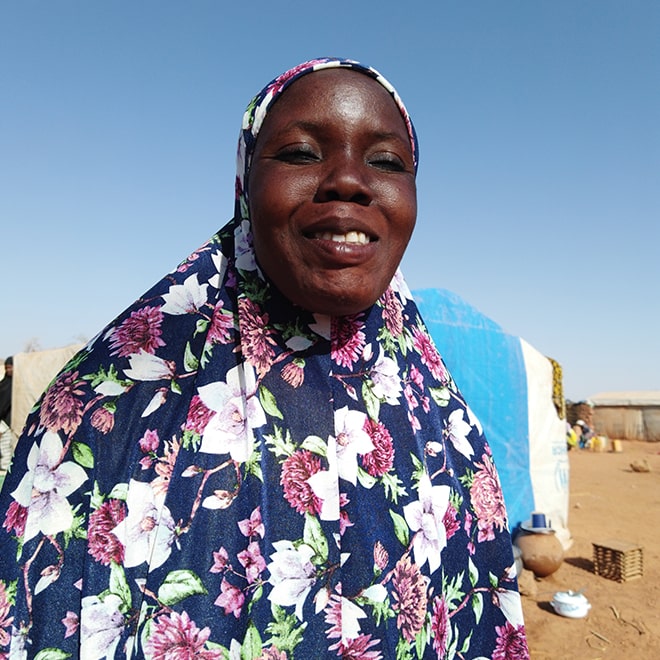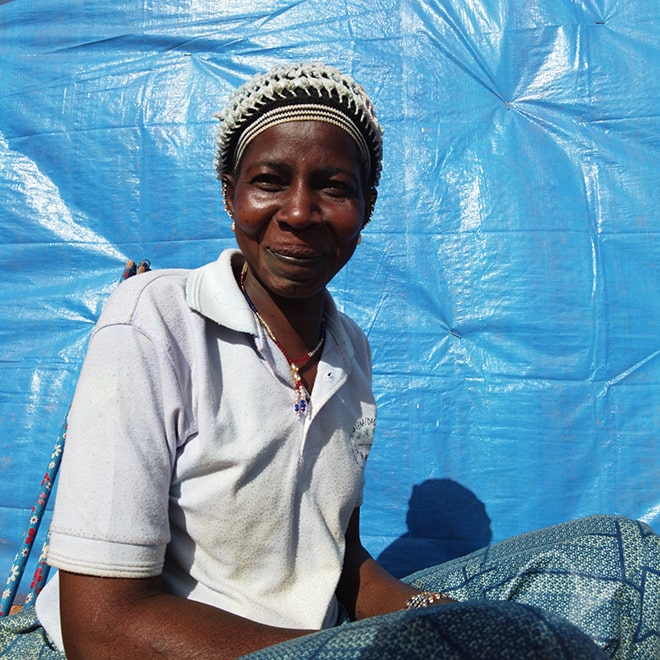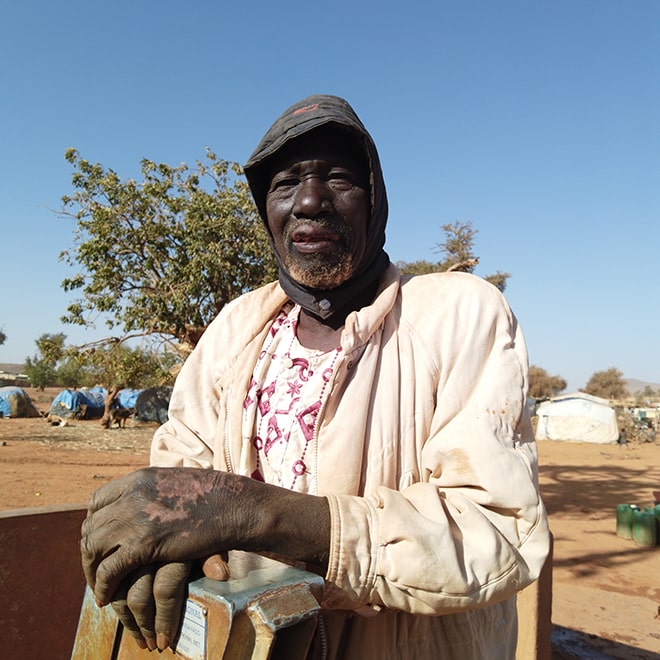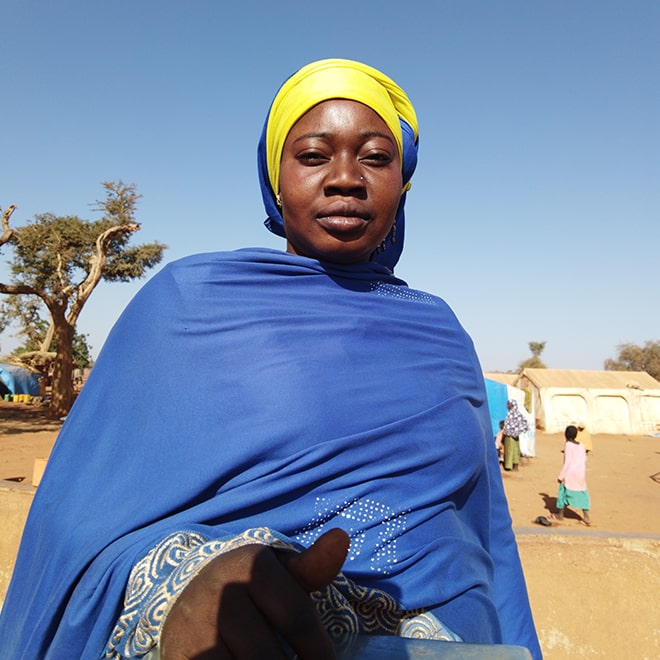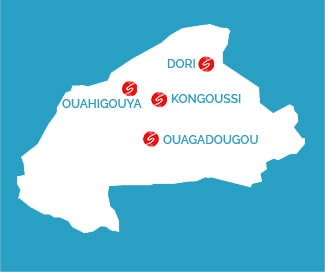The participatory video on SOLIDARITÉS INTERNATIONAL‘s projects in Burkina Faso
SOLIDARITÉS INTERNATIONAL is working in the town of Kongoussi and its region, in the North-Central part of Burkina Faso, to respond to the humanitarian needs of the population. This is also whereIt is in this town that internally displaced people have written and produced a participatory video on the theme of water, to share their daily challenges to cover respond to this vital need after being forced to flee their homes.
The security situation in Burkina Faso has kept deteriorating in the past two years. The humanitarian crisis took a turn in 2020 with a sharp increase in insecurity and pressure on natural resources. As of March 31, 2022, more than 1.8 million people have been displaced to escape the violence. This phenomenon of internal displacement puts additional pressure on access to basic services and natural resources in the host areas, where IDPs and host populations gather. The sharing of resources and the question of access to drinking water are therefore becoming a daily challenge, and also impact the social cohesion dynamics among communities.
In addition to assistance programmes for displaced persons in the city of Kongoussi, SOLIDARITÉS INTERNATIONAL ran a participatory video project with a group of displaced persons.
The principle of participatory video is to provide people with the tools to write and produce their own stories. The beneficiary populations create their own film around a project that concerns them directly. They then become the people’s Voice Amplificators while the humanitarian teams take on the role of facilitator.
Burkina Faso
Context and action- 21.8 million inhabitants
- 184th out of 191 countries on the Human Development Index
- 600.785 people helped
Testifying of the contexts in which SOLIDARITÉS INTERNATIONAL intervenes “is part of our mandate” explains Marion Tabouret Ferret, in charge of communication and donor accountability at SOLIDARITÉS INTERNATIONAL in Burkina Faso, who initiated the participatory video project. “As an emergency NGO, we have little time for communication. Even less communication that allows the people concerned involved to say what they want to say, as they want to say it. So, I thought to myself that participatory communication was perhaps the best way to provide testimonies while respecting the dignity of the people”.
To achieve this project, the SOLIDARITÉS INTERNATIONAL team in Burkina Faso was trained in participatory communication. In addition to the technical aspect, it was necessary to become aware of the power dynamics that exist between beneficiaries and humanitarian actors and to learn how to overcome them by adopting a “facilitator” position. It is thanks to this change in posture that the Voice Amplificators can have carte blanche over their own narrative. It is also and above all the moment to see that the collective is a resource, that each and every one is a driving force and that together it is possible to move forward. “Here, we use the expression “We are together!” a lot and for me it is something that is essential” confides Marion. For her, the participatory video, “is also a methodology that allows teams to be responsible, autonomous and to work together.”
“Preparing this project also allowed the teams to learn good practices for communicating and reporting on emergency situations. We have come full circle: we have taken the time to learn to be together and to communicate with the people we come to support. And we are able to react quickly in case of an emergency to alert them to the humanitarian needs that are at the heart of our mandate,” Marion concludes.
Staff from SOLIDARITÉS INTERNATIONAL‘s three operational bases in the country were trained and were able to exchange on the issues that affect them, learn practices and move forward together. One person, one voice. Together, a solution will be found. This dynamic once created internally was ready to be deployed with the Voice Amplificators.
Thus, Talata, Lolpoko, Pogbila, Tené, Tanga, Ismaïla Raabo, Koudpoko, and Napoko, after having been trained on the use of the camera and the methodology of creating a scenario, took charge of writing and producing their video on the issue of access to water. Korotimi Traore, Touma Idrissa and Cédric Kafando became Solidarités International facilitators with Marion Tabouret Ferret as coordinator.

To make a participatory video, several workshops, adapted to people who do not necessarily know how to read, write or even use a smartphone, are necessary for the writing and filming. Drawing was used, for example, to allow the Voice Amplificators team to visualize and discuss the scenes to be shot. One of the participants was concerned that he would not be able to draw properly or that he would drop the camera because of the tremors he suffers from. He proposed drawing at night at home when he would be calmer and not filming. His Voice teammates offered to draw for him and with him, and the facilitator showed him that with the wrist strap, the camera would not fall off. The equipment also compensates for shakiness and provides a stable image. Together, the team found ways to be inclusive.
The workshops are a moment of exchange. On the one hand, the beneficiaries have the necessary support to create a film and on the other hand, they create strong links with the facilitators of the NGO. Living in the same city, the daily lives are similar. In Djibo, where filming was interrupted for security reasons, Aminata, a facilitator, says: “We have become a family. When we pass you in the street we say “hey! when is the movie?”, we have become filmmakers. We have created relationships with people”.
When the time comes to shoot, everyone is mobilized. There are the Voice Amplificators to direct, shoot and act; the facilitators to assist, to get the image rights authorizations signed and finally, the whole community to make sure that children do not burst in, that the noise around is more or less controlled…
Action! On set! We look at what has just been shot, we discuss the angle to take and we move forward.
When the script and rushes are ready, it’s time to translate and send to editing. The head office communications team is responsible for creating the video imagined and desired by the Voice Amplificators. This was followed by numerous exchanges, feedback and clarifications, and finally, the final validation by the Voice Amplificators.
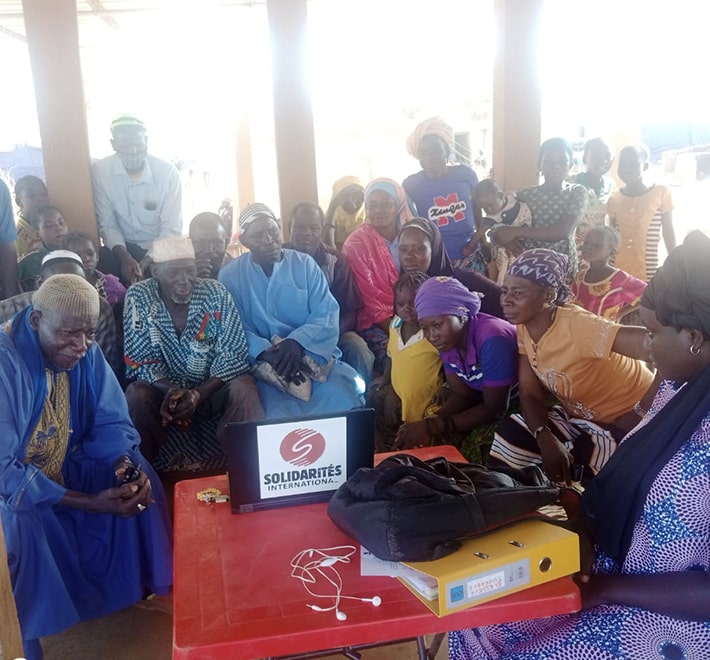
The strength of participatory communication is also that each person is responsible, and acts as such, as the driving force behind the activity.
In Djibo, where the shooting of the participatory video was interrupted due to attacks and blockades on the city, Aminata and Fatoumata, facilitators of the participatory project, went on their scooter to film the situation to alert people to the humanitarian needs. Fatoumata says she found her role as facilitator interesting: “It’s not easy to play this role. What was difficult was to get the beneficiaries in the frame without giving them any guidelines. When you see them enthusiastic with lots of ideas, you get carried away too and you have to hold back.” As for Korotimi, she explains that “to have the role of facilitator, you have to be delicate because you can influence people. […] What touched me was that there were a lot of women in the group. And seeing a woman with them in the group [ed. note: as a facilitator] motivated them to speak up because I was keen to give them the space to speak up.”
Souleymane Cherif, field coordinator in Kongoussi, concludes “Learning participatory communication was a good approach, I wish it was on all Solidarités International missions […]. The involvement of the beneficiaries gives another aspect and I was really happy to create this for the first time in Kongoussi. The beneficiaries got involved in the project and they liked it. In terms of acceptance of our association by the population, it helps in the interventions especially in the area of access to water.”
These people have a name, a face, a story
